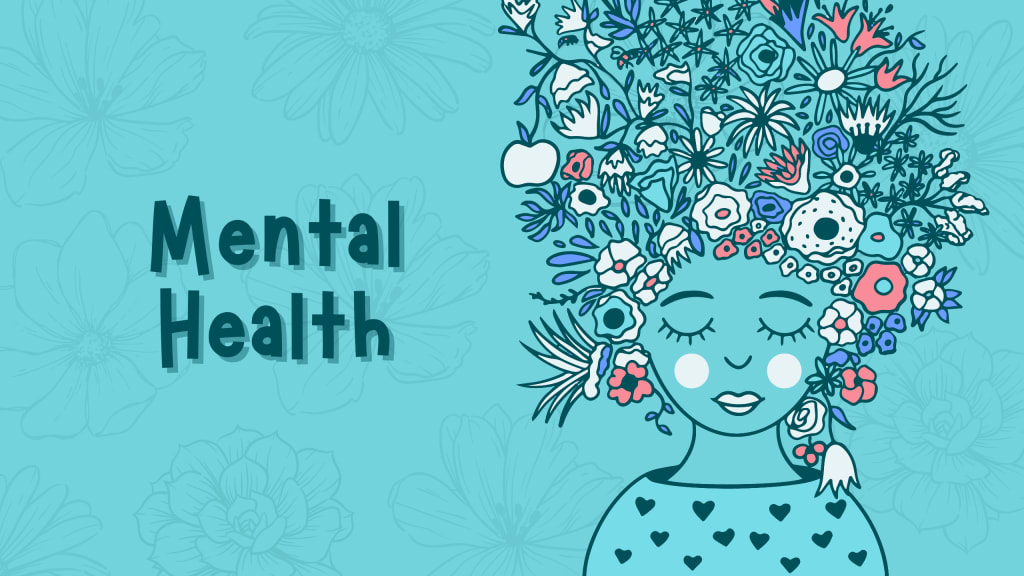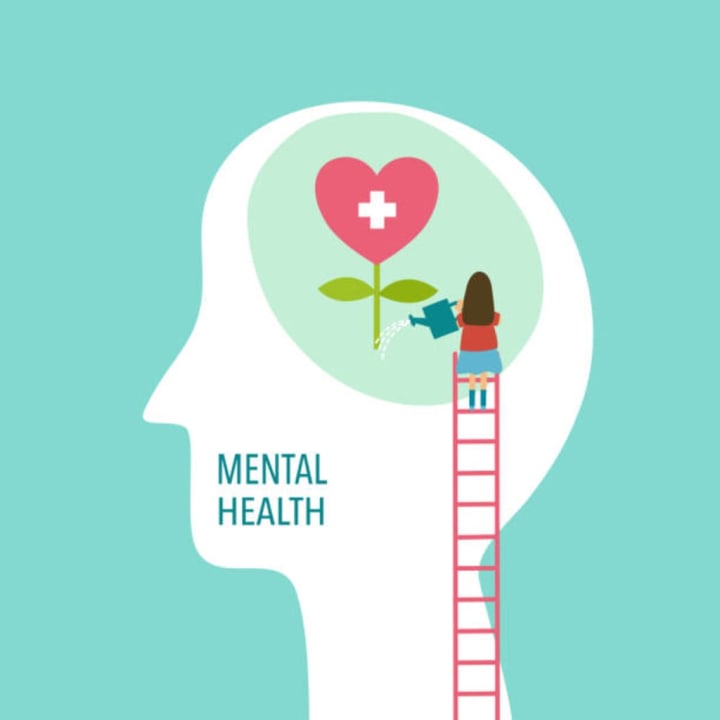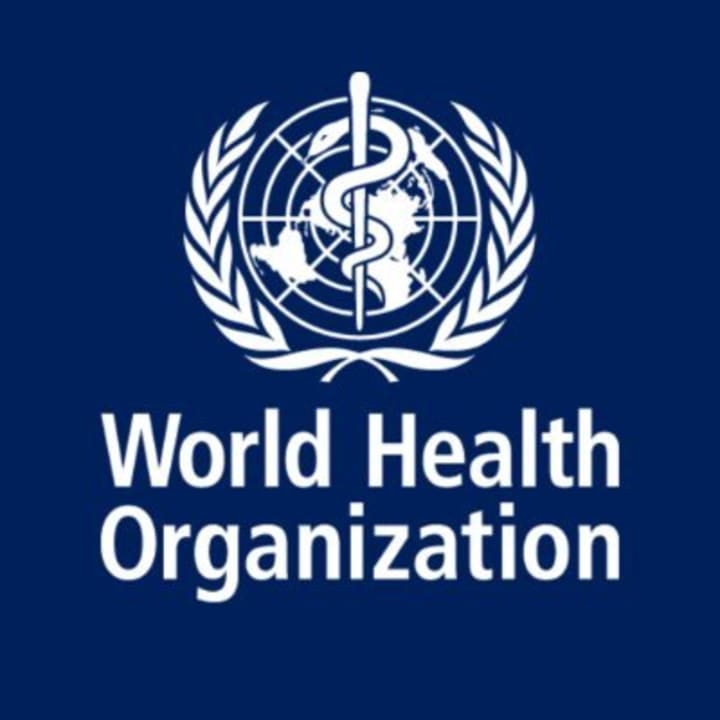Mental Health
Important information of mental health

- There are practical, affordable, and successful ways to promote, safeguard, and recover mental health.
- There is no question that more must be done to address mental health.
- Our whole well-being depends on our mental health, which has both intrinsic and practical significance.
- A complex interaction of personal, societal, and structural pressures and vulnerabilities determines mental health.
Ideas about mental health

Mental health is a condition of mental wellness that helps people to manage life's stressors, develop their potential, study and work effectively, and give back to their communities. It is a crucial element of health and well-being that supports both our individual and group capacity to decide, form connections, and influence the world we live in. A core human right is access to mental health. Additionally, it is essential for socioeconomic, communal, and personal growth.
The absence of mental diseases is only one aspect of mental wellness. It has variable degrees of difficulty and suffering, is experienced differently by each individual, and may have very diverse social and therapeutic implications. It occurs on a complicated continuum.
Mental health issues include psychosocial impairments, mental illnesses, and other mental states linked to high levels of suffering, functional limitations, or risk of self-harm. Although this is not always or always the case, people with mental health disorders are more likely to have lower levels of mental well-being.
Factors that affect mental health

Numerous individual, societal, and structural factors may interact throughout our lives to support or undermine our mental health and cause a change in where we fall on the mental health continuum.
People may be more susceptible to mental health issues due to personal psychological and biological characteristics including emotional intelligence, substance use, and heredity.
People are more likely to develop mental health issues when they are exposed to unfavorable social, economic, geopolitical, and environmental conditions, such as poverty, violence, inequality, and environmental squalor.
Risks can appear at any stage of life, but those that happen during developmentally vulnerable times, notably early infancy, are most harmful. For instance, physical punishment and strict parenting are known to harm children's health, and bullying is a major risk factor for mental health issues.
Similar protective factors persist throughout our lives and help us be more resilient. They comprise, among other things, our unique social and emotional capacities and characteristics as well as satisfying interpersonal relationships, high-quality education, respectable employment, secure neighborhoods, and cohesive communities.
At various scales, society contains both threats and safeguards for mental health. Risk for people, families, and communities is increased by local threats. Global risks, which include economic downturns, disease outbreaks, humanitarian crises, forced relocation, and the escalating climate issue, raise the risk for whole populations.
Only a few risk and protective factors can be reliably predicted. Despite being exposed to a risk factor, the majority of people do not go on to acquire a mental health illness, while many people who have no known risk factor do so anyway. However, the interrelated factors that affect mental health can either support or detract from it.
Prevention and promotion of mental illness

In order to lower risks, foster resilience, and create settings that are supportive of mental health, promotion and preventive interventions first identify the individual, societal, and structural determinants of mental health. Interventions may be created for single people, certain groups, or whole communities.
Promotion and preventive programs should encompass the education, labor, justice, transportation, environment, housing, and welfare sectors since changing the determinants of mental health frequently involves action beyond the health sector. By integrating promotion and preventive initiatives into health services, as well as by advocating, starting, and, where necessary, supporting multisectoral collaboration and coordination, the health sector may make a substantial contribution.
Globally important and included under the Sustainable Development Goals is the prevention of suicide. Limiting access to resources, responsible media coverage, social and emotional learning for teenagers, and early intervention can all result in significant progress. A very low-cost and cost-effective technique for lowering suicide rates is banning highly dangerous chemicals.
Another objective is to support caregivers in providing loving care. This may be done by enacting laws and regulations that support and safeguard mental health, developing school-based programs, and enhancing community and online settings. Programs for social and emotional development that are taught in schools are among the best ways for nations of all economic levels to advance their economies.
Growing interest in the promotion and protection of mental health at work can be supported by laws and regulations, organizational tactics, management training, and worker interventions.
Therapy and care for mental illness

The protection and promotion of everyone's mental health as well as meeting the needs of those who have mental health disorders are essential in the context of national initiatives to improve mental health.
Community-based mental health treatment should be used for this because it is more readily available and accepted than institutional care, contributes to the prevention of human rights abuses, and offers better recovery results for those who suffer from mental health issues. A network of linked services should be used to deliver community-based mental health treatment, including the following:
- integrating mental health services into primary care, generally in general hospitals and through task-sharing with non-specialist care providers;
- services for community mental health that may include peer support groups, assisted living, community mental health teams, and psychosocial rehabilitation; and
- services that provide mental health treatment in social service settings and other types of contexts, such jails, schools, and child protection.
Countries must also come up with creative ways to diversify and scale up treatment for prevalent mental health illnesses like depression and anxiety due to the enormous care gap, such as through non-specialist psychological counseling or digital self-help.
WHO reaction

The "Comprehensive mental health action plan 2013-2030" aims to improve mental health by strengthening effective leadership and governance, providing comprehensive, integrated, and responsive community-based care, putting promotion and prevention strategies into place, and strengthening information systems, evidence, and research. All WHO Member States are committed to putting this plan into practice. Insufficient progress was made toward the goals of the agreed-upon action plan in 2020, according to WHO's "Mental health atlas 2020" study of country performance against the action plan.
The WHO's "World Mental Health Report: Transforming Mental Health for All" encourages all nations to move quickly with the action plan's implementation. It contends that concentrating on three "paths to transformation" will enable all nations to make significant advancements in improving the mental health of their citizens:
- increase the importance placed on mental health by people, communities, and governments, and match that importance with dedication, participation, and investment from all parties, across all fields;
- in order to better safeguard mental health and ward off mental health disorders, change the physical, social, and economic aspects of settings in homes, schools, workplaces, and the larger society;
- bolster mental health services so that a community-based network of easily accessible, reasonably priced, and high-quality services and supports can meet the whole spectrum of mental health needs.
Protecting and advancing human rights, empowering those with lived experience, and guaranteeing a multisectoral and multistakeholder approach are all priorities for WHO.
In order to strengthen a group response to mental health and facilitate a change toward better mental health for all, WHO continues to work on a national and international level, including in humanitarian settings, to provide governments and partners with the evidence, tools, and technical support.
About the Creator
Enjoyed the story? Support the Creator.
Subscribe for free to receive all their stories in your feed. You could also pledge your support or give them a one-off tip, letting them know you appreciate their work.






Comments
There are no comments for this story
Be the first to respond and start the conversation.